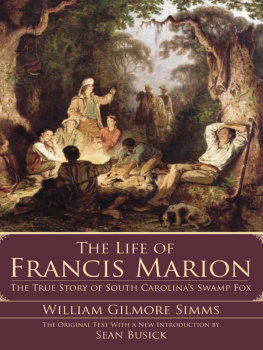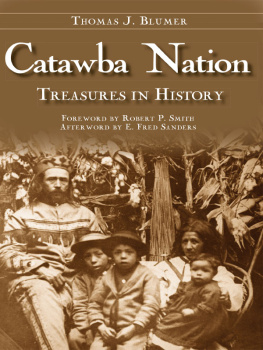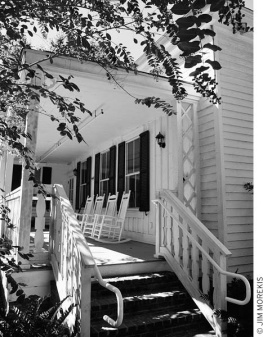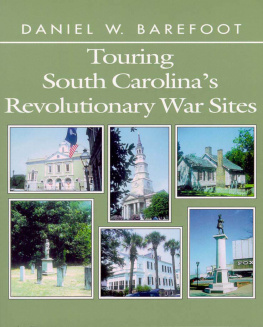2018 University of South Carolina
Published by the University of South Carolina Press
Columbia, South Carolina 29208
www.sc.edu/uscpress
27 26 25 24 23 22 21 20 19 18
10 9 8 7 6 5 4 3 2 1
Library of Congress Cataloging-in-Publication Data can be found at http://catalog.loc.gov/
ISBN 978-1-61117-858-6 (cloth)
ISBN 978-1-61117-859-3 (ebook)
Front cover image courtesy of Greg Thompson Collection, donated to the collection by Isaac Benenhaley/David Peagler.
Preface
Every so often, a pearl of poignant beauty comes our way. Something happenssomething that is simultaneously painful and inspiringenriching our lives and helping us better understand the world around us. Such is the beauty of the Turkish people of Sumter County, South Carolina. Their full history and true storypresented here for the first timereveal a beleaguered society that struggled as a rural southern enclave through isolation, segregation, discrimination, and oppression for almost two centuries. They had to fight and win their full rights as citizens; and only in the last few decades have they begun assimilating into mainstream American society. In this book, the authors investigate and reveal the Turkish communitys origins; and the Turkish people, shedding their traditional reluctance to talk about themselves, share the heretofore untold, inside account of their extraordinary community in Dalzell, South Carolina.
Actually, this book is two books. There are two authors, with two different objectives, pursuing two separate investigations; but the efforts come together to resolve a mystery that has confounded everyone for two centuries. First, Browder, a Sumter native, will present academic research documenting the ancestral background of the fabled Turkish patriarch and the chronological history of the Turkish community. Second, Ognibene, a Turkish descendant herself, will get the Turkish people to tell their own story about what life was like in this rural settlement; and she will share her personal feelings about the enigmatic heritage of this unique group. Overall, this work is a breakthrough analysis of South Carolinas Turkish community. You will find the Turkish people a revelational pleasure, and the following pages should prove both provocative and enlightening.
Notes on Authors, Objectives, and Analytic Model
The Ognibene-Browder partnership is recent and happenstancebut their backgrounds bonded them together for presenting this poignant pearl of Turkish life and history. They are revealed more personally in the following pages; however, as the following biographic entries reveal, they both have special reasons for trying to tell the true story of the Turkish people.
The captions include information derived from documents of varying nature over the past two centuries. Errors and inconsistencies are inevitable; however, the authors have exercised due diligence to minimize those problems.

Objectives

The authors hope to make several contributions through this project. The first objective is to try to solve the mystery that has plagued the Turkish people and outsiders from the beginning: Exactly who was Joseph Benenhaley? What was his role in the origin of the Turkish community? Is the Turkish traditional narrative true?
The second objective is to help the Turkish people tell their own story about who they are and what life was like within their community. Their voice has been a critically missing element of this part of South Carolina and southern history.
A third objective is to present the Turkish experience during segregation and integration in the middle of the past century. The participants interviewed here lived through their own struggle in this area at the same time that our nation was focused on the national civil rights movement.
A final purpose of this projectreflecting the authors responsibilities as teachersis to inspire todays educators to embrace all students in the classroom. South Carolina, the South, and the United States of America have changed considerably over the past half century and continue to diversify in the twenty-first century. The story and voice of Turkish citizens who lived through those experiences should be very instructive in dealing positively with marginalized groups in contemporary society.

Analytic Model

The authors have designed a very clear, credible, and successful model, that is, a conceptual framework of propositions and strategies for discovering and telling the true story of the Turkish people. Presenting it here will help readers navigate the twists and turns of the rest of this book.
Seven Propositions
The authors started this project with many questions, premises, and hunches; and, as the work moved forward, the most constructive notions were refined into a concise list of propositions hypothesized as the main currents and nature of Turkish life over the past two centuries. Actually, readers can consider these propositions not only as the basis of the evolving project but also as the enduring principles in a conclusive conception of Turkish history.
Here are the seven propositions of the analytic model:
First and most significantly, the authors asserted that the Sumter County Turkish family began, ancestrally, with Joseph Benenhaley, the original Ottoman Turk, during the early years of the American nation. This was a central truism, based in logic and simplicity.
Propositions two and three were judicious elaborations of connectedness in the evolving community. They posited that Turkish lineage extended, mainly, to and through Benenhaleys descendants. Outsiders who married descendants thereby gained entry to the Turkish group; and being born to Turkish parents carried birthright inclusion.
Proposition four related to the ethnic makeup of the Turkish settlement in its formative yearsand this historically involved racial connotations and practices. As already acknowledged, the original Ottoman Turk sat atop the family tree. White Europeans (the wives of Benenhaley and Scott) were part of the group from the beginning and others married in later; and some persons of partial American Indian descent married in during the first few generations. The Turkish people thus comprised a mainly dark-skinned gathering; however, Sub-Sahara Africanswhether runaway slaves or free black individualswere not received in this community. Of course, the group became more diverse over time, especially during the twentieth century.



 Objectives
Objectives 
 Analytic Model
Analytic Model 









